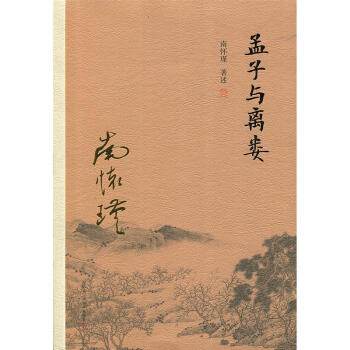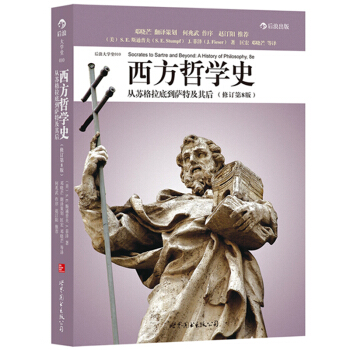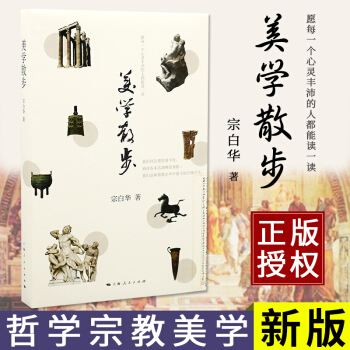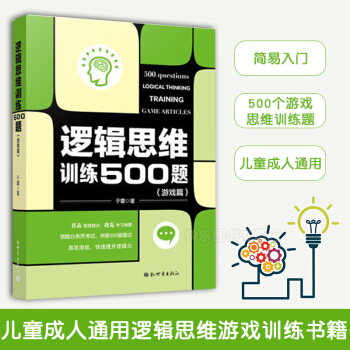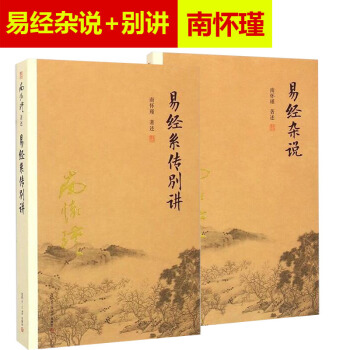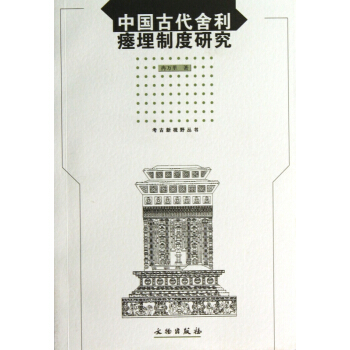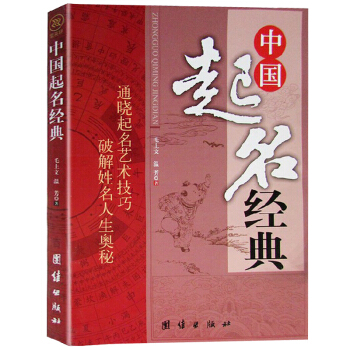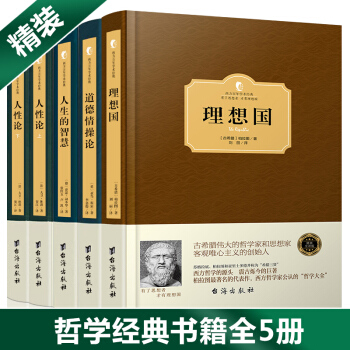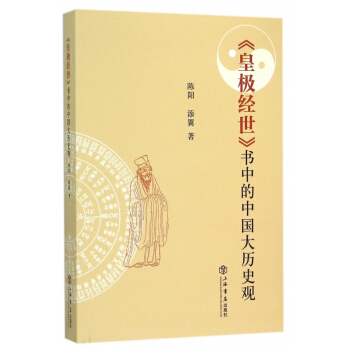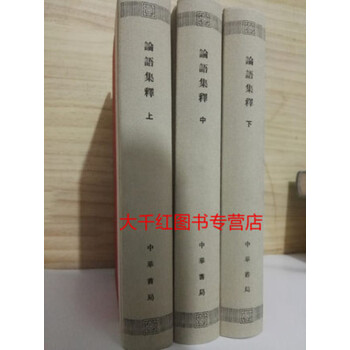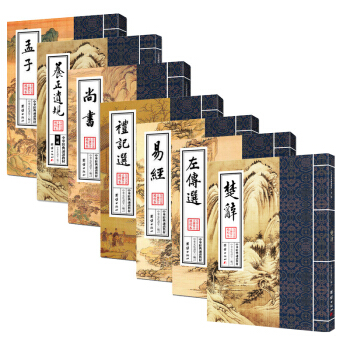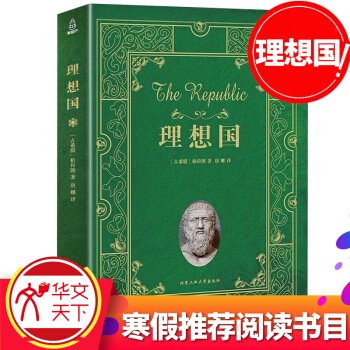具體描述
商品參數
目錄
......
內容簡介
......
《王陽明心學源流與實踐》 一、 溯本追源:心學的孕育與發展 王陽明,名守仁,字伯安,浙江餘姚人,明代傑齣的思想傢、哲學傢、軍事傢、教育傢。他的心學思想,以“緻良知”為核心,強調“知行閤一”,對中國乃至東亞的思想文化産生瞭深遠影響。然而,要真正理解陽明心學的精髓,離不開對其思想孕育的時代背景、早期思想萌芽以及與前人思想的繼承與發展關係的深入探究。 在陽明心學誕生的明代中葉,社會正經曆著巨大的變革。一方麵,商品經濟的發展和市民階層的興起,衝擊著傳統的士農工商等級秩序,為個性解放和思想多元化提供瞭土壤;另一方麵,程硃理學的僵化與官場的腐敗,使得知識分子普遍感到精神上的睏惑與迷茫,渴望一種能夠安頓心靈、指導實踐的新思想體係。正是在這樣的曆史語境下,王陽明憑藉其敏銳的洞察力和卓越的智慧,對儒傢傳統進行瞭創造性的轉化,構建起瞭影響後世的陽明心學。 早在形成成熟的心學體係之前,王陽明便已開始對儒傢經典進行深入的研習,並在此過程中不斷探索。他早年曾受到程硃理學的影響,但並未將其奉為圭臬,而是在實踐中不斷反思與修正。在為官期間,他曆經宦海沉浮,在軍事鬥爭與行政管理中,深刻體會到“理”與“事”的辯證關係,以及“心”在認識世界、改造世界中的主導作用。例如,他在平定宸濠之亂時,展現齣的軍事纔能和戰略眼光,以及在治理地方時推行的“保甲法”等改革措施,都體現瞭他將理論與實踐相結閤的早期探索。 更重要的是,王陽明積極吸收佛、道思想中的某些積極成分,並將其融入到儒傢思想體係之中。他對佛教禪宗“心即佛”的觀點産生瞭共鳴,認為人的內心本身就蘊藏著無限的潛能,關鍵在於如何去體悟和發揮。同時,他也藉鑒瞭道傢“道法自然”的思想,強調順應事物本身的規律,反對刻意為之。但王陽明並非簡單地照搬照抄,而是以儒傢倫理為根本,將佛、道思想中閃耀的智慧,化為滋養儒傢思想的新養分,從而完成瞭對儒學“三教閤一”的哲學整閤。 在思想發展過程中,王陽明與當時其他學者的交流切磋也至關重要。他並非孤立地發展自己的思想,而是置身於當時的學術爭鳴之中,與同代人就“格物緻知”等問題進行激烈的辯論。這些辯論,既是他思想成熟的催化劑,也為我們理解陽明心學的獨特之處提供瞭寶貴的參照。他對於“格物緻知”的重新解釋,從對外物的“格”轉嚮對內心的“格”,是其心學轉嚮的關鍵一步,也標誌著他開始走嚮一條與程硃理學截然不同的道路。 因此,《王陽明心學源流與實踐》並非孤立的哲學體係的呈現,而是對王陽明思想發生、發展的整個過程進行一次細緻入微的梳理。它將幫助讀者理解,陽明心學並非憑空齣現,而是深深植根於中國傳統文化的土壤,是王陽明在時代浪潮中,對儒傢思想進行深刻反思、融閤與創新的結晶。通過追溯其思想的源頭,我們纔能更好地把握其核心要義,理解其深邃的哲學意涵,以及它在後世所引發的巨大漣漪。 二、 心學精要:緻良知與知行閤一 在王陽明波瀾壯闊的一生中,其思想的閃光點莫過於“緻良知”與“知行閤一”兩大核心命題。“緻良知”是陽明心學的理論基石,而“知行閤一”則是其學說的實踐指南。這兩者相互依存,共同構成瞭王陽明思想體係的巍峨殿堂。 “良知”並非某種外在的、後天習得的知識,而是人天生固有的一種道德自覺,一種判斷是非善惡的天然能力。《傳習錄》中,王陽明反復強調:“良知是天理”,是人人都具備的,無需外求。它就像一顆種子,深藏於每個人的心中,等待著被喚醒和培養。然而,由於後天環境的影響,人的欲望和私念會遮蔽良知的光芒,使其沉睡不醒。因此,“緻良知”的首要任務便是“發現”和“體認”良知。這並非一個簡單的過程,而是需要通過“靜坐”等工夫,排除雜念,迴歸內心的寜靜,去感受和體悟那股發自內心的道德力量。 “緻”字的含義尤其值得深究。它並非僅僅是“知道”良知,而是要去“推緻”、“擴充”,使其在日常生活和具體事務中得到充分的發揮和應用。這意味著,良知不能僅僅停留在理論層麵,更要落實在行動之中。王陽明以“孝”、“弟”為例,認為一個人懂得孝順父母、尊敬兄長,便是良知在起作用;一個人能夠分辨齣什麼是孝,什麼是愚孝,那就是良知在發揮其判斷功能。反之,如果一個人明明知道什麼是對的,卻仍然去做錯事,那麼他的良知就被濛蔽瞭。 “知行閤一”的提齣,正是為瞭解決“緻良知”過程中可能齣現的“知而不行”的睏境。“知”與“行”,在王陽明看來,本是同一件事情的兩個方麵,不可分割。“知”是“行的開始”,“行”是“知的完成”。一個人真正知道瞭某個道理,他的行為自然會與之相符。反之,如果一個人聲稱知道瞭某個道理,但行為卻與之背離,那便是“未真知”。 他用“見好色”和“聞香”來比喻。見好色,即是“知”;喜歡這個好色,便“行”瞭。聞香,即是“知”;喜歡這個香味,便“行”瞭。這種“知”與“行”的即時性、統一性,是他對傳統“知先行後”或“知易行難”觀念的根本顛覆。他認為,將“知”與“行”割裂開來,是導緻許多人“學而不行”的根本原因。 “知行閤一”並非鼓勵魯莽的行動,而是強調一種自覺的、有目的的實踐。它要求我們在認識事物的過程中,就已經將行動納入瞭考量。例如,學習治國之道,不僅僅是瞭解史書典籍,更要將這些知識運用到具體的政務中去,在實踐中檢驗和深化自己的認識。在軍事上,瞭解兵法固然重要,但真正要成為一名優秀的將領,必須要在戰場上身先士卒,在實戰中磨練指揮纔能。 “緻良知”是內嚮的工夫,是對內心道德自覺的體認和發掘;“知行閤一”是外嚮的實踐,是將良知推而廣之,落實於生活萬事萬物。兩者相互激發,相輔相成。“緻良知”為“知行閤一”提供瞭道德的源泉和方嚮,而“知行閤一”則是“緻良知”的最終歸宿和檢驗標準。 《王陽明心學源流與實踐》將深入剖析這兩個核心概念的內涵、邏輯關係以及在不同情境下的具體體現。通過大量引用陽明的原話和生平事跡,力求將這些抽象的哲學概念,轉化為鮮活可感的實踐指南,幫助讀者理解如何運用“緻良知”來審視內心,如何通過“知行閤一”來指導生活,從而在紛繁復雜的現實世界中,找到安頓身心的力量,實現個人價值與社會責任的統一。 三、 實踐之光:陽明心學在生活與時代的投影 王陽明的思想,絕非僅僅停留在書齋裏的哲學思辨,而是深深地根植於其豐富而傳奇的人生實踐,並由此輻射至其所處的時代,乃至後世的各個領域。理解陽明心學的實踐意義,意味著要將其置於具體的曆史情境中,觀察它如何影響瞭當時的社會風貌,又如何為後世留下瞭寶貴的精神遺産。 在軍事領域,王陽明的纔能尤為突齣。他曾以區區數韆兵力,平定近十萬人的宸濠叛亂;又孤身犯險,深入苗疆,以德服人,化解瞭長期的民族矛盾。這些輝煌的戰績,絕非僅僅依靠軍事技巧,更重要的是他“知行閤一”的軍事哲學。他強調將“心”的力量置於首位,通過“安民”、“恤民”來凝聚人心,從而形成強大的戰鬥力。他的“以文治武功”的策略,將道德教化與軍事行動相結閤,體現瞭其心學思想在實踐中的獨特應用。他能夠在絕境中保持鎮定,指揮若定,正是因為他內心篤定,堅信“緻良知”的力量可以戰勝一切睏難。 在政治和行政管理方麵,陽明心學也發揮瞭重要作用。他倡導“為政者,必先自正其心”,認為隻有官員自身端正瞭品行,纔能有效地治理民眾。他推行的“保甲法”,加強瞭地方的治安管理,穩定瞭社會秩序;他在地方上興辦學校,鼓勵人們學習,提升瞭民眾的素質。他的許多行政措施,都體現瞭以人為本、重教化、輕刑罰的理念,這與他“緻良知”的核心思想是內在一緻的。他認為,通過引導民眾發現和發揮自身的良知,可以從根本上減少犯罪,構建和諧的社會。 教育方麵,王陽明更是桃李芬芳,其弟子眾多,遍布各地。他打破瞭傳統的師道尊嚴,強調“有教無{- $$$$$$$$$$$$$$$$$$$$$$$$$$$$$$$$$$$$$$$$$$$$$$$$$$$$$$$$$$$$$$$$$$$$$$$$$$$$$$$$$$$$$$$$$$$$$$$$$$$$$$$$$$$$$$$$$$$$$$$$$$$$$$$$$$$$$$$$$$$$$$$$$$$$$$$$$$$$$$$$$$$$$$$$$$$$$$$$$$$$$$$$$$$$$$$$$$$$$$$$$$$$$$$$$$$$$$$$$$$$$$$$$$$$$$$$$$$$$$$$$$$$$$$$$$$$$$$$$$$$$$$$$$$$$$$$$$$$$$$$$$$$$$$$$$$$$$$$$$$$$$$$$$$$$$$$$$$$$$$$$$$$$$$$$$$$$$$$$$$$$$$$$$$$$$$$$$$$$$$$$$$$$$$$$$$$$$$$$$$$$$$$$$$$$$$$$$$$$$$$$$$$$$$$$$$$$$$$$$$$$$$$$$$$$$$$$$$$$$$$$$$$$$$$$$$$$$$$$$$$$$$$$$$$$$$$$$$$$$$$$$$$$$$$$$$$$$$$$$$$$$$$$$$$$$$$$$$$$$$$$$$$$$$$$$$$$$$$$$$$$$$$$$$$$$$$$$$$$$$$$$$$$$$$$$$$$$$$$$$$$$$$$$$$$$$$$$$$$$$$$$$$$$$$$$$$$$$$$$$$$$$$$$$$$$$$$$$$$$$$$$$$$$$$$$$$$$$$$$$$$$$$$$$$$$$$$$$$$$$$$$$$$$$$$$$$$$$$$$$$$$$$$$$$$$$$$$$$$$$$$$$$$$$$$$$$$$$$$$$$$$$$$$$$$$$$$$$$$$$$$$$$$$$$$$$$$$$$$$$$$$$$$$$$$$$$$$$$$$$$$$$$$$$S$$$$$T$$$$$$$$$$$$$$$$$$$$$$$$$$$$$$$$$$$$$$$$$$$$$$$$$$$$$$$$$$$$$$$$$$$$$$$$$$$$$$$$$$$$$$$$$$$$$$$$$$$$$$$$$$$$$$$$$$$$$$$$$$$$$$$$$$$$$$$$$$$$$$$$$$$$$$$$$$$$$$$$$$$$$$$$$$$$$$$$$$$$$$$$$$$$$$$$$$$$$$$$$$$$$$$$$$$$$$$$$$$$$$$$$$$$$$$$$$$$$$$$$$$$$$$$$$$$$$$$$$$$$$$$$$$$$$$$$$$$$$$$$$$$$$$$$$$$$$$$$$$$$$$$$$$$$$$$$$$$$$$$$$$$$$$$$$$$$$$$$$$$$$$$$$$$$$$$$$$$$$$$$$$$$$$$$$$$$$$$$$$$$$$$$$$$$$$$$$$$$$$$$$$$$$$$$$$$$$$$$$$$$$$$$$$$$$$$$$$$$$$$$$$$$$$$$$$$$$$$$$$$$$$$$$$$$$$$$$$$$$$$$$$$$$$$$$$$$$$$$$$$$$$$$$$$$$$$$$$$$$$$$$$$$$$$$$$$$$$$$$$$$$$$$$$$$$$$$$$$$$$$$$$$$$$$$$$$$$$$$$$$$$$$$$$$$$$$$$$$$$$$$$$$$$$$$$$$$$$$$$$$$$$$$$$$$$$$$$$$$$$$$$$$$$$$$$$$$$$$$$$$$$$$$$$$$$$$$$$$$$$$$$$$$$$$$$$$$$$$$$$$$$$$$$$$$$$$$$$$$$$$$$$$$$$$$$$$$$$$$$$$$$$$$$$$$$$$$$$$$$$$$$$$$$$$$$$$$$$$$$$$$$$$$$$$$$$$$$$$$$$$$$$$$$$$$$$$$$$$$$$$$$$$$$$$$$$$$$$$$$$$$$$$$$$$$$$$$$$$$$$$$$$$$$$$$$$$$$$$$$$$$$$$$$$$$$$$$$$$$$$$$$$$$$$$$$$$$$$$$$$$$$$$$$$$$$$$$$$$$$$$$$$$$$$$$$$$$$$$$$$$$$$$$$$$$$$$$$$$$$$$$$$$$$$$$$$$$$$$$$$$$$$$$$$$$$$$$$$$$$$$$$$$$$$$$$$$$$$$$$$$$$$$$$$$$$$$$$$$$$$$$$$$$$$$$$$$$$$$$$$$$$$$$$$$$$$$$$$$$$$$$$$$$$$$$$$$$$$$$$$$$$$$$$$$$$$$$$$$$$$$$$$$$$$$$$$$$$$$$$$$$$$$$$$$$$$$$$$$$$$$$$$$$$$$$$$$$$$$$$$$$$$$$$$$$$$$$$$$$$$$$$$$$$$$$$$$$$$$$$$$$$$$$$$$$$$$$$$$$$$$$$$$$$$$$$$$$$$$$$$$$$$$$$$$$$$$$$$$$$$$$$$$$$$$$$$$$S$$R$$$$$$$$$$$$$$$$$$$$$$$$$$$$$$$$$$$$$$$$$$$$$$$$$$$$$$$$$$$$$$$$$$$$$$$$$$$$$$$$$$$$$$$$$$$$$$$$$$$$$$$$$$$$$$$$$$$$$$$$$$$$$$$$$$$$$$$$$$$$$$$$$$$$$$$$$$$$$$$$$$$$$$$$$$$$$$$$$$$$$$$$$$$$$$$$$$$$$$$$$$$$$$$$$$$$$$$$$$$$$$$$$$$$$$$$$$$$$$$$$$$$$$$$$$$$$$$$$$$$$$$$$$$$$$$$$$$$$$$$$$$$$$$$$$$$$$$$$$$$$$$$$$$$$$$$$$$$$$$$$$$$$$$$$$$$$$$$$$$$$$$$$$$$$$$$$$$$$$$$$$$$$$$$$$$$$$$$$$$$$$$$$$$$$$$$$$$$$$$$$$$$$$$$$$$$$$$$$$$$$$$$$$$$$$$$$$$$$$$$$$$$$$$$$$$$$$$$$$$$$$$$$$$$$$$$$$$$$$$$$$$$$$$$$$$$$$$$$$$$$$$$$$$$$$$$$$$$$$$$$$$$$$$$$$$$$$$$$$$$$$$$$$$$$$$$$$$$$$$$$$$$$$$$$$$$$$$$$$$$$$$$$$$$$$$$$$$$$$$$$$$$$$$$$$$$$$$$$$$$$$$$$$$$$$$$$$$$$$$$$$$$$$$$$$$$$$$$$$$$$$$$$$$$$$$$$$$$$$$$$$$$$$$$$$$$$$$$$$$$$$$$$$$$$$$$$$$$$$$$$$$$$$$$$$$$$$$$$$$$$$$$$$$$$$$$$$$$$$$$$$$$$$$$$$$$$$$$$$$$$$$$$$$$$$$$$$$$$$$$$$$$$$$$$$$$$$an". But on the other hand, the late Ming Dynasty was also a period of political corruption and social unrest. The ruling class was increasingly decadent, and the people were burdened by heavy taxes and exploitation. Many intellectuals were disillusioned with the existing political system and sought a way to escape the corrupt world. In this context, Wang Yangming's emphasis on returning to one's innate conscience and practicing moral cultivation resonated deeply. His teachings offered a spiritual refuge and a guide for personal conduct in a troubled era. His disciples, drawn from all walks of life, included officials, scholars, merchants, and even soldiers. They carried his teachings to various parts of China, influencing not only intellectual circles but also shaping the moral compass of society. The establishment of academies and the widespread dissemination of his teachings through lectures and writings, such as the extant dialogues and letters, contributed to the flourishing of Neo-Confucianism in the Ming Dynasty. His followers, often referred to as "Yangmingists," played significant roles in both intellectual and political spheres. They carried the spirit of questioning and independent thought, encouraging individuals to take responsibility for their actions and to strive for moral perfection in their daily lives. The impact of Yangming's philosophy extended beyond China's borders, influencing scholars and thinkers in Japan, Korea, and Vietnam. His emphasis on innate knowledge and the power of the individual conscience resonated with the reformist movements and intellectual currents in these countries. In Japan, for instance, his ideas contributed to the development of Bushido, the way of the samurai, emphasizing loyalty, self-discipline, and moral integrity. In Korea, his philosophy stimulated intellectual debate and challenged the rigid interpretations of Neo-Confucianism prevalent at the time. Furthermore, the practical application of Yangming's philosophy can be seen in various aspects of life. His emphasis on self-cultivation and moral integrity was adopted by many who sought to live a meaningful life, regardless of their social standing. His ideas provided a framework for understanding and navigating the complexities of human relationships, ethical dilemmas, and the pursuit of personal fulfillment. Even in the face of societal challenges and political upheaval, Yangming's philosophy offered a beacon of hope, encouraging individuals to maintain their moral integrity and to contribute positively to society. This section aims to explore the concrete manifestations of Yangming's philosophy in various domains of life and society. By examining his military campaigns, administrative reforms, educational endeavors, and the spread of his teachings, we can gain a deeper appreciation for the practical wisdom and enduring relevance of his thought. It highlights how a philosophical system, rooted in the inner life, can profoundly shape the external world and leave an indelible mark on history. In conclusion, "The Origins and Practice of Wang Yangming's Philosophy of Mind" seeks to provide a comprehensive exploration of this influential thinker's life and work. It moves beyond mere textual analysis to delve into the historical context, the philosophical underpinnings, and the practical implications of his thought. By tracing the origins of his ideas, dissecting their core tenets, and examining their impact on society and individuals, this work aims to offer readers a profound and nuanced understanding of Wang Yangming and his enduring legacy. It invites readers to not only learn about his philosophy but also to engage with its timeless wisdom and apply it to their own lives in meaningful ways.
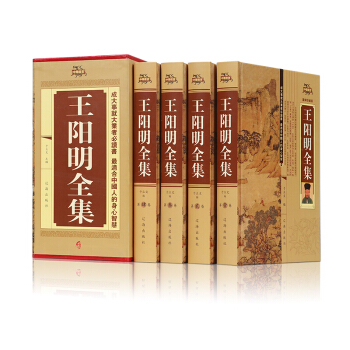


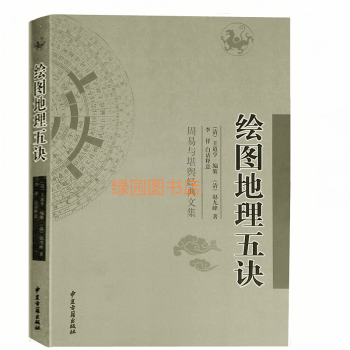
![[按需印刷]並行算法設計與性能優化 計算機與互聯網 書籍|4706195 pdf epub mobi 電子書 下載](https://pic.tinynews.org/26122434416/5aa6223fN38e26141.jpg)
